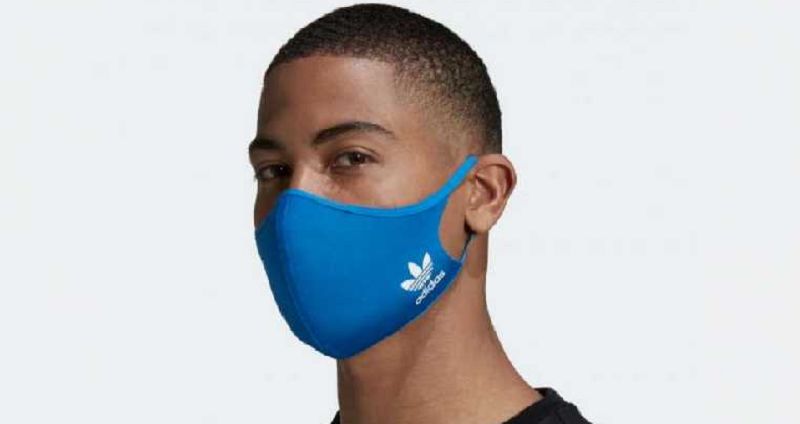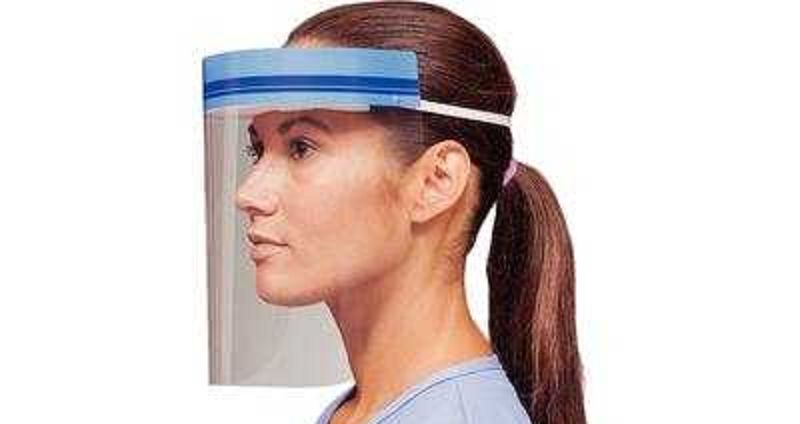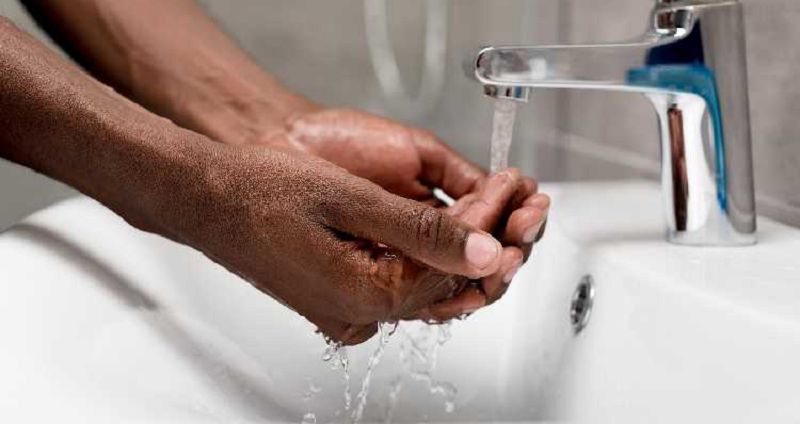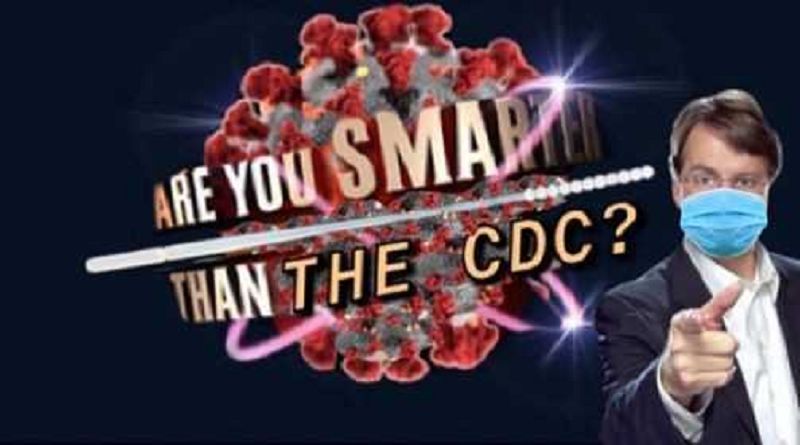Are You Smarter Than the CDC?
Tired of your fingers tingling from mask over-oxygenation? Tired of not being able to hold babies? Tired of this man-made virus strategically controlling everyone during an election year? You may actually know more than the CDC! Take this quiz to find out!
Tired of your fingers tingling from mask over-oxygenation? Tired of not being able to hold babies? Tired of this man-made virus strategically controlling everyone during an election year? You may actually know more than the CDC! Take this quiz to find out!
Who can spread COVID-19?
Anyone who feels sick
Only old people
Masks
Anyone
Only people outside of the US
No one, it's a hoax
Correct!
Anyone can potentially spread COVID-19, since people can be asymptomatic carriers of the virus. That's why it's important to wear a mask every time you go out, even if you don't feel sick. You may have already had it and gotten someone sick...
Correct!
Anyone can potentially spread COVID-19, since people can be asymptomatic carriers of the virus. That's why it's important to wear a mask every time you go out, even if you don't feel sick. You may have already had it and gotten someone sick...
Not quite.
Anyone, regardless of age, can contract COVID-19, and can therefore spread it. A person can also be infected with COVID-19 but not have any symptoms, which is why it's important for everyone to wear a mask while in public.
Visit https://www.cdc.gov/coronavirus/2019-ncov/index.html to learn the facts about COVID-19.
Not quite.
Anyone, regardless of age, can contract COVID-19, and can therefore spread it. A person can also be infected with COVID-19 but not have any symptoms, which is why it's important for everyone to wear a mask while in public.
Visit https://www.cdc.gov/coronavirus/2019-ncov/index.html to learn the facts about COVID-19.
Sorry, Karen.
This is a global pandemic, regardless of what country it came from, the political parties that governors or national leaders associate with, or however much you think you know about epidemiology. ANYONE can potentially spread COVID-19, whether you exhibit symptoms or not.
Visit https://www.cdc.gov/coronavirus/2019-ncov/index.html to learn the facts about COVID-19.
Sorry, Karen.
This is a global pandemic, regardless of what country it came from, the political parties that governors or national leaders associate with, or however much you think you know about epidemiology. ANYONE can potentially spread COVID-19, whether you exhibit symptoms or not.
Visit https://www.cdc.gov/coronavirus/2019-ncov/index.html to learn the facts about COVID-19.

It's a controversial topic nowadays, but what does a mask actually do?
Acts as a gateway to suffocation
Spreads your own germs that you already have in your body back into your body and makes you sick
Acts as a barrier preventing COVID-19 in your body from spreading to others through airborne transmission
Acts as a barrier preventing COVID-19 in others from spreading to your body through airborne transmission
Really, Karen?
If you feel like your mask is suffocating you, try getting a bigger size or switching the material. I've found that when I'm running around at work, it's easier for me to breathe with disposable masks made of polypropylene rather than reusable cloth masks.
Wearing a mask protects other people from getting COVID-19 from you by airborne transmission. Remember that you can have it without ever even knowing it, so find a mask that you can breathe in!
Visit https://www.cdc.gov/coronavirus/2019-ncov/index.html to learn the facts about COVID-19.
Really, Karen?
If you feel like your mask is suffocating you, try getting a bigger size or switching the material. I've found that when I'm running around at work, it's easier for me to breathe with disposable masks made of polypropylene rather than reusable cloth masks.
Wearing a mask protects other people from getting COVID-19 from you by airborne transmission. Remember that you can have it without ever even knowing it, so find a mask that you can breathe in!
Visit https://www.cdc.gov/coronavirus/2019-ncov/index.html to learn the facts about COVID-19.
Really, Karen?
Your germs are already in your body, and your immune system is already aware of them. So if you already have COVID-19, you won't get any sicker from wearing a mask. In fact, wearing a mask isn't meant to protect YOU at all - it protects other people from getting COVID-19 from you through airborne transmission.
Visit https://www.cdc.gov/coronavirus/2019-ncov/index.html to learn the facts about COVID-19.
Really, Karen?
Your germs are already in your body, and your immune system is already aware of them. So if you already have COVID-19, you won't get any sicker from wearing a mask. In fact, wearing a mask isn't meant to protect YOU at all - it protects other people from getting COVID-19 from you through airborne transmission.
Visit https://www.cdc.gov/coronavirus/2019-ncov/index.html to learn the facts about COVID-19.
Close, but no vaccine...
It's great that you know that masks do help prevent the spread of COVID-19, but it's actually the other way around! We wear masks to prevent others from potentially catching the virus from us.
Visit https://www.cdc.gov/coronavirus/2019-ncov/index.html to learn the facts about COVID-19.
Close, but no vaccine...
It's great that you know that masks do help prevent the spread of COVID-19, but it's actually the other way around! We wear masks to prevent others from potentially catching the virus from us.
Visit https://www.cdc.gov/coronavirus/2019-ncov/index.html to learn the facts about COVID-19.
Correct!
Giving gifts is great, but not when that gift is deadly!
Correct!
Giving gifts is great, but not when that gift is deadly!
Check all situations that are appropriate for a person NOT to wear a mask in public or while in contact with others outside of their household.
A person has a sensory sensitivity that makes it challenging to wear a face covering.
A young child, particularly preschool/elementary-aged and under, has difficulty properly wearing a mask for extended periods of time.
A person pulls their mask down briefly to have a conversation.
A person has an intellectual or developmental disability that makes it challenging to wear a mask.
A person goes out in public (i.e. shopping, appointment, social gathering) or interacts with someone outside of their household for 30 minutes or less.
A person engages in high intensity activities, such as running, that cause difficulty breathing.
A person is in a setting where masks may increase the risk of heart-related illnesses or safety concerns.
A person is in a social gathering of 10 or less people.
A person is in a setting where their mask can or will become wet.
A person is deaf or hard of hearing/cares for someone who is hearing impaired and relies on lipreading to communicate.
A person feels that the government is imposing too much control over their body.
Wow, that was a lot of words. Let's review.
The CDC recognizes that wearing a mask may not always be possible. These examples are listed on their website:
-People who are deaf or hard of hearing
-Those who care for or interact with a person who is hearing impaired
-People with intellectual and developmental disabilities
-People with certain mental health conditions
-People with sensory sensitivities
-Younger children (preschool/early elementary aged) unable to wear a mask for an extended period of time
-People engaging in activities that may cause the mask to become wet (like swimming)
-People who are engaged in high intensity activities (like running)
-People who work in a setting where masks increase a risk of heart-related illness or safety concerns due to hazard from the mask
Visit this page from the CDC's website that discusses specifics on all of these situations and alternative suggestions for people in these specific situations!
https://www.cdc.gov/coronavirus/2019-ncov/prevent-getting-sick/cloth-face-cover-guidance.html
Oh yeah. Otherwise, you can wear a mask to have a conversation, to make a 10-minute Walmart run, to meet up with your friends at the park, and whatever else you may be doing. As you carry on with your life, don't end someone else's!
Wow, that was a lot of words. Let's review.
The CDC recognizes that wearing a mask may not always be possible. These examples are listed on their website:
-People who are deaf or hard of hearing
-Those who care for or interact with a person who is hearing impaired
-People with intellectual and developmental disabilities
-People with certain mental health conditions
-People with sensory sensitivities
-Younger children (preschool/early elementary aged) unable to wear a mask for an extended period of time
-People engaging in activities that may cause the mask to become wet (like swimming)
-People who are engaged in high intensity activities (like running)
-People who work in a setting where masks increase a risk of heart-related illness or safety concerns due to hazard from the mask
Visit this page from the CDC's website that discusses specifics on all of these situations and alternative suggestions for people in these specific situations!
https://www.cdc.gov/coronavirus/2019-ncov/prevent-getting-sick/cloth-face-cover-guidance.html
Oh yeah. Otherwise, you can wear a mask to have a conversation, to make a 10-minute Walmart run, to meet up with your friends at the park, and whatever else you may be doing. As you carry on with your life, don't end someone else's!
Mask up a little earlier!
The CDC recommends that children ages 2 and up wear masks when in public and in contact with people outside their household.
Visit https://www.cdc.gov/coronavirus/2019-ncov/index.html to learn the facts about COVID-19.
Mask up a little earlier!
The CDC recommends that children ages 2 and up wear masks when in public and in contact with people outside their household.
Visit https://www.cdc.gov/coronavirus/2019-ncov/index.html to learn the facts about COVID-19.
Mask training, check. (How about potty training next?)
The CDC recommends that children under 2 years old, as well as anyone who has trouble breathing and anyone who is unconscious, incapacitated, or otherwise unable to remove a mask without assistance, should not wear masks.
Mask training, check. (How about potty training next?)
The CDC recommends that children under 2 years old, as well as anyone who has trouble breathing and anyone who is unconscious, incapacitated, or otherwise unable to remove a mask without assistance, should not wear masks.
You're gonna cover the baby's whole face!
The CDC states that masks should not be worn by children under 2 years old, as well as anyone who has trouble breathing and anyone who is unconscious, incapacitated, or otherwise unable to remove a mask without assistance.
Visit https://www.cdc.gov/coronavirus/2019-ncov/index.html to learn the facts about COVID-19.
You're gonna cover the baby's whole face!
The CDC states that masks should not be worn by children under 2 years old, as well as anyone who has trouble breathing and anyone who is unconscious, incapacitated, or otherwise unable to remove a mask without assistance.
Visit https://www.cdc.gov/coronavirus/2019-ncov/index.html to learn the facts about COVID-19.

If you do not have any known health concerns that would limit your ability to safely wear a mask but have experienced symptoms of carbon dioxide poisoning and self-germ poisoning through wearing a mask (no, those aren't real effects), you may consider wearing a face shield instead. Which statements about face shields are true?
They should wrap around the sides of your face.
They are a perfectly effective substitute for masks.
Face shields come in both disposable and reusable varieties.
Newborns and infants should not wear plastic face shields.
They should extend below the chin.
Face shields are an effective substitute for masks during expected sustained close contact.
Face shields more effectively protect you from others than vice versa.
Face shields more effectively protect others from you than vice versa.
Since they're talked about less frequently than masks, let's not SHIELD each other from the facts about face shields.
Here's what the CDC says about face shields:
-"It is not known if face shields provide any benefit as source control to protect others from the spray of respiratory particles."
-Not an effective substitute for cloth face coverings during normal everyday activities
-Recommended use when in sustained close contact with other people
-Should wrap around the sides of the face and extend below the chin
-Reusable shields should be cleaned and disinfected after each use
-Not for newborns and infants
Since they're talked about less frequently than masks, let's not SHIELD each other from the facts about face shields.
Here's what the CDC says about face shields:
-"It is not known if face shields provide any benefit as source control to protect others from the spray of respiratory particles."
-Not an effective substitute for cloth face coverings during normal everyday activities
-Recommended use when in sustained close contact with other people
-Should wrap around the sides of the face and extend below the chin
-Reusable shields should be cleaned and disinfected after each use
-Not for newborns and infants

But wait! Preventing the spread of COVID-19 isn't limited to just face coverings! COVID-19 can be spread through surface contact, which is why the CDC recommends you wash your hands often (especially immediately after you return from going out in public). For how many seconds minimum should you wash your hands?
We've got an overachiever in the house.
The CDC recommends that you wash your hands for at least 20 seconds, so you must be pretty clean. Guess you better go wash your hands after you finish this quiz.
Visit https://www.cdc.gov/handwashing/when-how-handwashing.html for the CDC's tips on handwashing.
We've got an overachiever in the house.
The CDC recommends that you wash your hands for at least 20 seconds, so you must be pretty clean. Guess you better go wash your hands after you finish this quiz.
Visit https://www.cdc.gov/handwashing/when-how-handwashing.html for the CDC's tips on handwashing.
Correct!
Choose your favorite soap scent and give the world your best 20-second go-to karaoke excerpt!
Visit https://www.cdc.gov/handwashing/when-how-handwashing.html for the CDC's tips on handwashing.
Correct!
Choose your favorite soap scent and give the world your best 20-second go-to karaoke excerpt!
Visit https://www.cdc.gov/handwashing/when-how-handwashing.html for the CDC's tips on handwashing.
Make sure you wash your hands for 20 seconds! That's like counting the number of people you could be infecting by not washing your hands...
Visit https://www.cdc.gov/handwashing/when-how-handwashing.html for the CDC's tips on handwashing.
Make sure you wash your hands for 20 seconds! That's like counting the number of people you could be infecting by not washing your hands...
Visit https://www.cdc.gov/handwashing/when-how-handwashing.html for the CDC's tips on handwashing.
Yikes, you don't have soap and water readily available. What minimum percentage of alcohol should your hand sanitizer have?
Math is hard...
The CDC recommends that you use hand sanitizer with at least 60% alcohol. Try to keep some in your car and in your purse or whatever bag you may keep with you.
Visit https://www.cdc.gov/coronavirus/2019-ncov/community/clean-disinfect/index.html for information about cleaning and disinfecting and safety precautions in different situations and environments.
Math is hard...
The CDC recommends that you use hand sanitizer with at least 60% alcohol. Try to keep some in your car and in your purse or whatever bag you may keep with you.
Visit https://www.cdc.gov/coronavirus/2019-ncov/community/clean-disinfect/index.html for information about cleaning and disinfecting and safety precautions in different situations and environments.
Cheers! (No, don't drink your hand sanitizer.)
The CDC recommends that you use hand sanitizer with at least 60% alcohol. Try to keep some in your car and in your purse or whatever bag you may keep with you.
Visit https://www.cdc.gov/coronavirus/2019-ncov/community/clean-disinfect/index.html for information about cleaning and disinfecting and safety precautions in different situations and environments.
Cheers! (No, don't drink your hand sanitizer.)
The CDC recommends that you use hand sanitizer with at least 60% alcohol. Try to keep some in your car and in your purse or whatever bag you may keep with you.
Visit https://www.cdc.gov/coronavirus/2019-ncov/community/clean-disinfect/index.html for information about cleaning and disinfecting and safety precautions in different situations and environments.
Because this is a virus that we know little about, we cannot always accurately predict how the virus will mutate, spread, etc. The CDC has created a series of Pandemic Planning Scenarios to try to measure the potential effects of the virus, one of which is the current best estimate that updates as we learn more about the virus. According to Scenario 5: Current Best Estimate, what percentage of infections are asymptomatic?
Your guess is...not as good as the CDC's.
The Current Best Estimate guesses that 40% of COVID-19 cases are asymptomatic. Whatever the percentage truly is, we know that COVID-19 cases can be, and have been, asymptomatic. Are you willing to risk giving someone the virus?
Visit https://www.cdc.gov/coronavirus/2019-ncov/covid-data/mathematical-modeling.html to learn more about how the CDC creates models and plans to flatten the curve.
Your guess is...not as good as the CDC's.
The Current Best Estimate guesses that 40% of COVID-19 cases are asymptomatic. Whatever the percentage truly is, we know that COVID-19 cases can be, and have been, asymptomatic. Are you willing to risk giving someone the virus?
Visit https://www.cdc.gov/coronavirus/2019-ncov/covid-data/mathematical-modeling.html to learn more about how the CDC creates models and plans to flatten the curve.
You must've been on the CDC's website before.
The Current Best Estimate guesses that 40% of COVID-19 cases are asymptomatic. Whatever the percentage truly is, we know that COVID-19 cases can be, and have been, asymptomatic. Are you willing to risk giving someone the virus?
Visit https://www.cdc.gov/coronavirus/2019-ncov/covid-data/mathematical-modeling.html to learn more about how the CDC creates models and plans to flatten the curve.
You must've been on the CDC's website before.
The Current Best Estimate guesses that 40% of COVID-19 cases are asymptomatic. Whatever the percentage truly is, we know that COVID-19 cases can be, and have been, asymptomatic. Are you willing to risk giving someone the virus?
Visit https://www.cdc.gov/coronavirus/2019-ncov/covid-data/mathematical-modeling.html to learn more about how the CDC creates models and plans to flatten the curve.
And finally, select the Ohio citizen who you feel needs the most COVID-19 education based on their Facebook comment from the July 15 Press Conference.
Keith R: "Masks don't even keep out dust so how they keep a virus"
Lacy M: "Stop requiring masks its been proven many times and said by many health professionals masks should only be worn by thw sick and health care professionals!!! Stop the mask hysteria stop stores from requiring their employees and customers to wear them. This has gotten out of control! Our rights have been violated"
Brandon R: "You are the scared ones wearing masks , you stay home in your shells" / "i dont wear a shirt half the time , I live in rural America(real America ) not china"
Kyla C: "ITS AGAINST THE OHIO STATE CONSTITUTION TO QUARANTINE HEALTHY PEOPLE!!!!! REPORT HIM TO THE WHITE HOUSE!!!"
Don't be a Keith. Wear a mask. Wear a face shield. Wash your hands. Use hand sanitizer. Clean all your surfaces often. Don't touch your face. Stay 6 feet apart from people. Don't act like everything is back to normal just because there's no stay-at-home order.
Don't be a Keith. Wear a mask. Wear a face shield. Wash your hands. Use hand sanitizer. Clean all your surfaces often. Don't touch your face. Stay 6 feet apart from people. Don't act like everything is back to normal just because there's no stay-at-home order.
Don't be a Lacy. Wear a mask. Wear a face shield. Wash your hands. Use hand sanitizer. Clean all your surfaces often. Don't touch your face. Stay 6 feet apart from people. Don't act like everything is back to normal just because there's no stay-at-home order.
Don't be a Lacy. Wear a mask. Wear a face shield. Wash your hands. Use hand sanitizer. Clean all your surfaces often. Don't touch your face. Stay 6 feet apart from people. Don't act like everything is back to normal just because there's no stay-at-home order.
Don't be a Brandon. Wear a mask. Wear a face shield. Wash your hands. Use hand sanitizer. Clean all your surfaces often. Don't touch your face. Stay 6 feet apart from people. Don't act like everything is back to normal just because there's no stay-at-home order.
Don't be a Brandon. Wear a mask. Wear a face shield. Wash your hands. Use hand sanitizer. Clean all your surfaces often. Don't touch your face. Stay 6 feet apart from people. Don't act like everything is back to normal just because there's no stay-at-home order.
Don't be a Kyla. Wear a mask. Wear a face shield. Wash your hands. Use hand sanitizer. Clean all your surfaces often. Don't touch your face. Stay 6 feet apart from people. Don't act like everything is back to normal just because there's no stay-at-home order.
Don't be a Kyla. Wear a mask. Wear a face shield. Wash your hands. Use hand sanitizer. Clean all your surfaces often. Don't touch your face. Stay 6 feet apart from people. Don't act like everything is back to normal just because there's no stay-at-home order.

So, the age-old question. Are you smarter than the CDC?
Yes, I am an an Epidemiologist or other MD, with possible other certifications such as Certified in Public Health (CPH), Master of Public Health (MPH), and National Registry of Certified Microbiologists (NRCM).
No, I have not studied epidemiology and therefore am not qualified in the slightest to make seemingly expert claims on how to solve a global pandemic caused by a little-known virus.
Yes.
Well then, thank you for your work. There's so much to learn as the virus is so complex. It must be incredibly frustrating to hear people like Brandon, Keith, Kyla, and Lacy comment as if they were experts. Not sure why you even took this quiz then because..............yeah.
Well then, thank you for your work. There's so much to learn as the virus is so complex. It must be incredibly frustrating to hear people like Brandon, Keith, Kyla, and Lacy comment as if they were experts. Not sure why you even took this quiz then because..............yeah.
That is correct. We are not experts, which is why we leave the decision-making to the experts. So go forth, be safe, and continue to learn things and teach people things about this virus until it's gone. It's a group effort and it's literally a matter of life or death.
That is correct. We are not experts, which is why we leave the decision-making to the experts. So go forth, be safe, and continue to learn things and teach people things about this virus until it's gone. It's a group effort and it's literally a matter of life or death.
Karen, have you not learned? Go back and retake this quiz and learn something. Go to every link that's in this quiz and start reading.
Also, forget whatever grade this quiz says you got. If you clicked "yes," then you automatically fail. You're not smarter than the CDC.
Karen, have you not learned? Go back and retake this quiz and learn something. Go to every link that's in this quiz and start reading.
Also, forget whatever grade this quiz says you got. If you clicked "yes," then you automatically fail. You're not smarter than the CDC.
{"name":"Are You Smarter Than the CDC?", "url":"https://www.quiz-maker.com/QPREVIEW","txt":"Tired of your fingers tingling from mask over-oxygenation? Tired of not being able to hold babies? Tired of this man-made virus strategically controlling everyone during an election year? You may actually know more than the CDC! Take this quiz to find out!, Who can spread COVID-19?","img":"https://cdn.poll-maker.com/55-2187024/f.jpg?sz=1200"}
More Quizzes
CARE FOR DIAPER RASH
100
2 times table
251229
What do you think of this Asian wife and mother?
100
Life Skills Lessons 1, 2, 3
520
Unleash Your Creativity: Take Our Imagination Test
201023450
Academic Strategies
15822239
Quiz About Brands: Can You Match 10 Brands to Their Owners?
201032180
Ultimate Defensive Driving: Test Your Road Safety Skills
201027798
Questions About Black Holes: Free Trivia Challenge!
201028988
What Chinese Element Am I? Discover Your Element
201024844
How Well Do You Know the Maya Civilization? Take the!
201036352
Test Your Knowledge: Episcopal Church Structure
201033008
